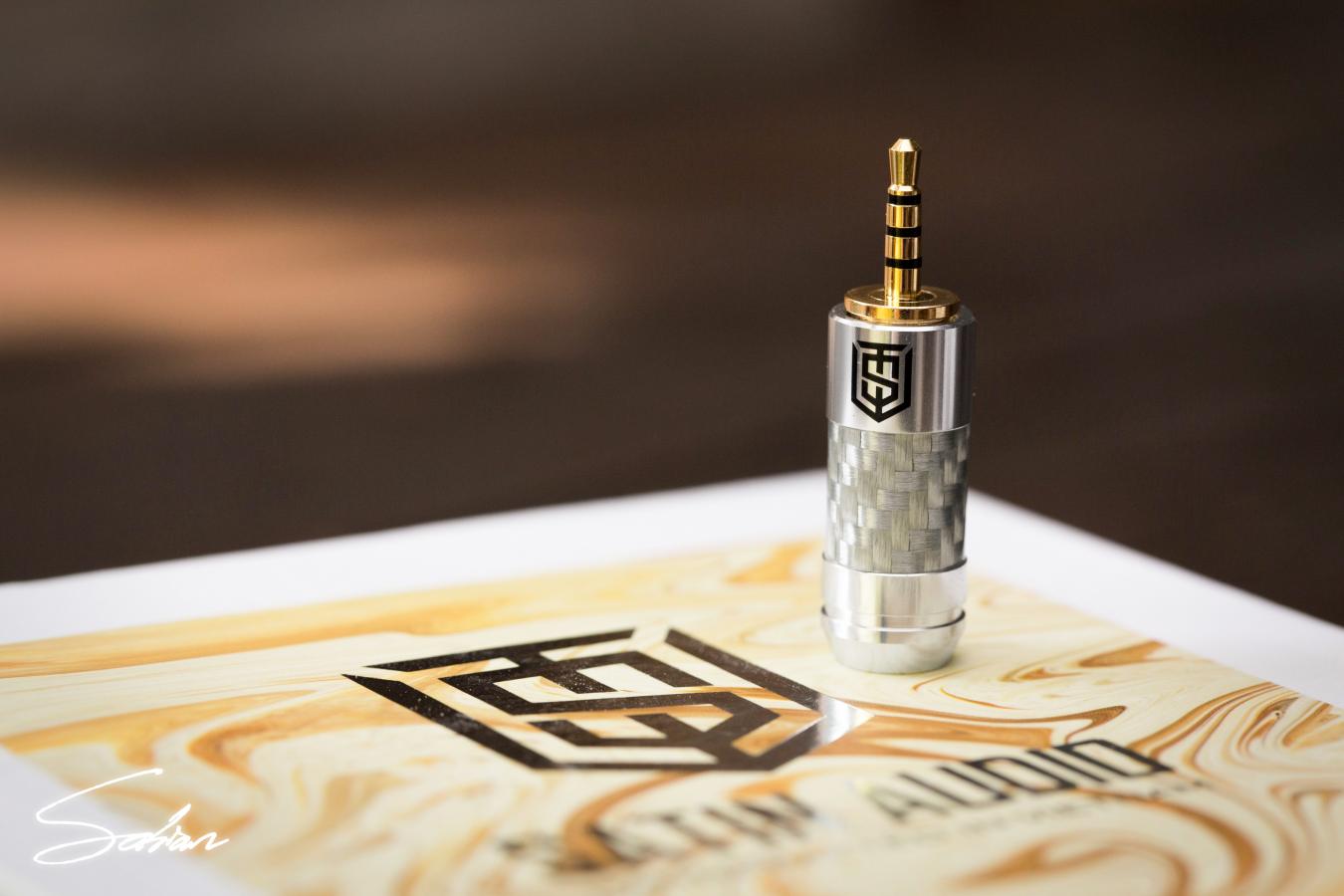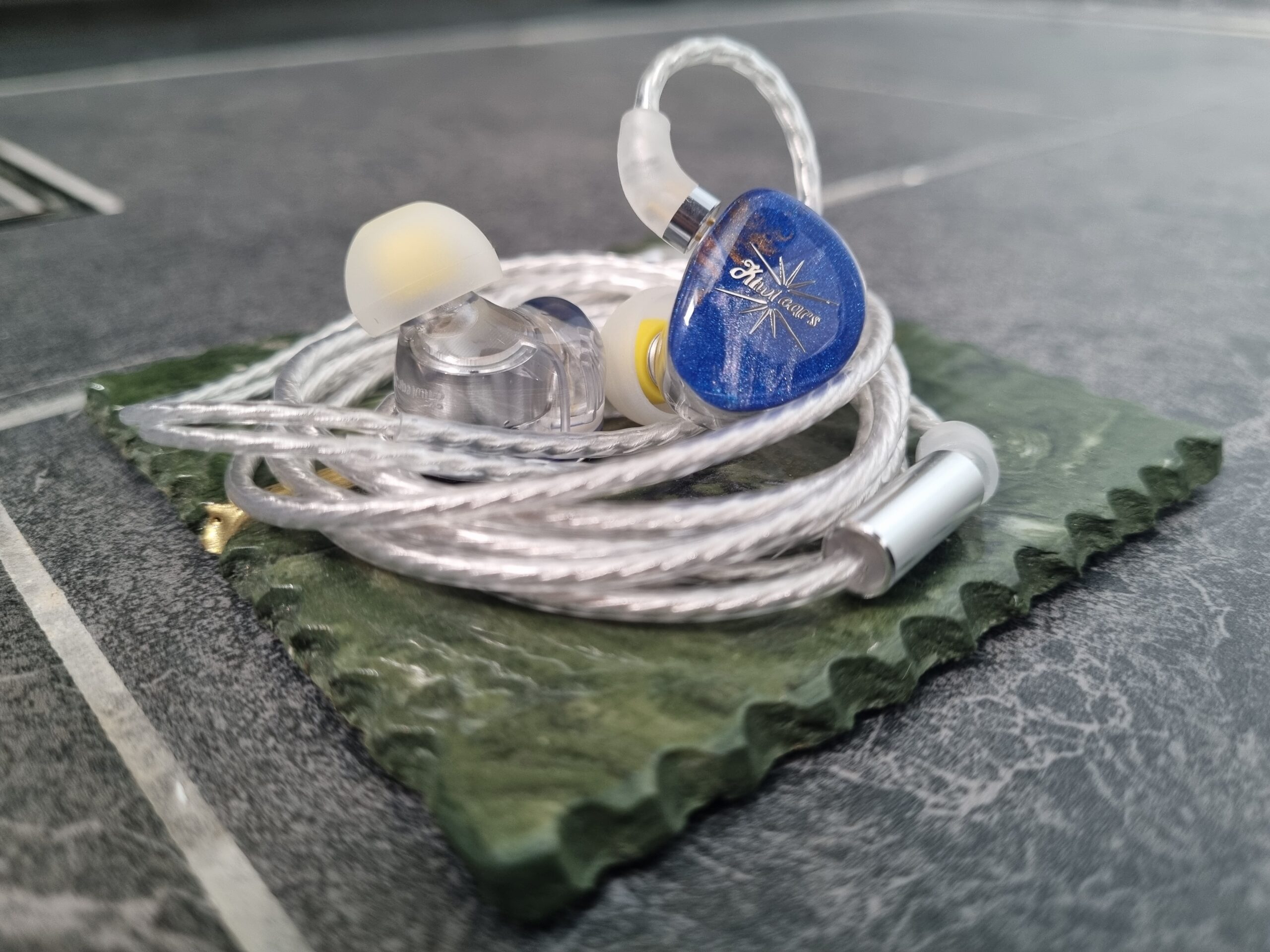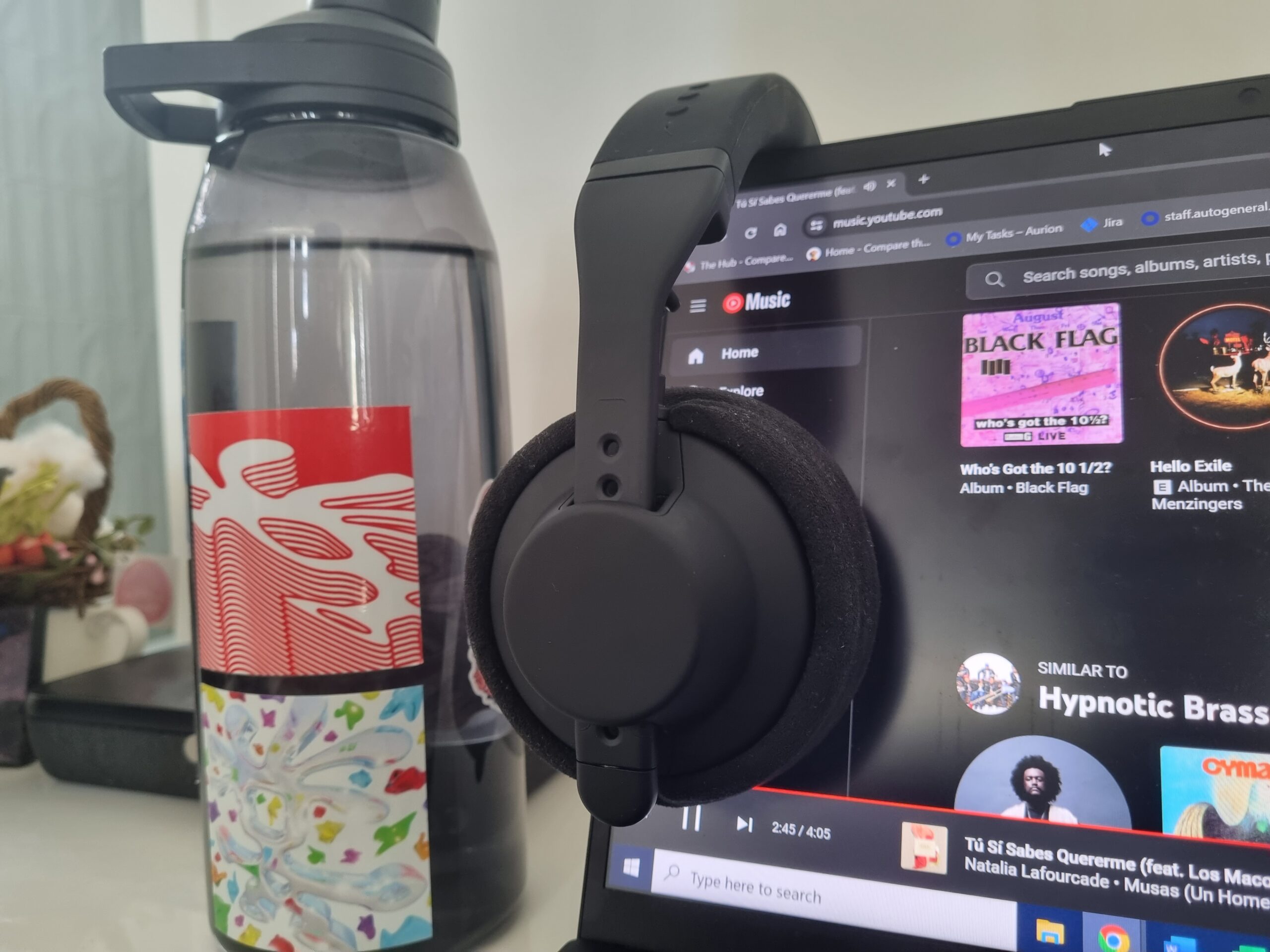DISCLAIMER: Satin Audio provided me with the Griffin and Chimera in return for my honest opinion. I am not personally affiliated with the company in any way, nor do I receive any monetary rewards for a positive evaluation. I’d like to thank Satin Audio for their kindness and support. The review is as follows.
Satin Audio is an aftermarket cable manufacturer based in Hanoi, Vietnam. Founded by audiophiles concerned with how pricey upgrade cables have become, Satin Audio’s prime initiative is to offer products and components of high quality at an accessible price point. Most recently, they unveiled a line of cables dubbed the Monster Series. It consists of four SKUs with varying permutations of copper and silver. But, what’s most striking about the line-up is that the prices range from $109.90 to $209.90 – extremely competitive compared to offerings from the industry’s top brands today. Today, we’ll be looking at the the line-up’s two first entries – Griffin and Chimera – to see whether or not they truly do bang for the buck.

Build and Accessories
All Monster Series cables come in a white box with the Satin Audio logo shimmeringly embossed on top. Alongside the logo is swirly artwork, which doubles as both decor and a way to distinguish one model from another. The Griffin comes with a grey swirl, while the Chimera’s is tan-ish. Given the price point, I’m impressed by the box design’s range of colours and textures. Satin Audio have affirmed my strong belief that presentation should not be compromised for affordability.

Delving into the box’s contents, Satin Audio continue to impress. You’re greeted by a booklet detailing the technologies they’ve infused into your cable, as well as a chart briefly comparing the spec differences between their many SKUs. And, beneath that booklet is your Satin Audio cable sat within a branded soft pouch. Among the budget-minded aftermarket cables I’ve seen, Satin Audio and PWAudio are the only manufacturers I’m aware of that offer these extra storage cases.

And, to finish, they also come with their own cable ties. I’m glad they’ve went ahead with a faux leather kind of material, rather than the much cheaper velcro type. I don’t know why they’re labelled Oriolus. Perhaps the two companies share a common OEM. Nevertheless, it’s yet another trinket that even the top dogs of the industry rarely offer – the only one I’ve personally experienced being Han Sound Audio. Again, this adds even more value to Satin Audio’s value proposition.
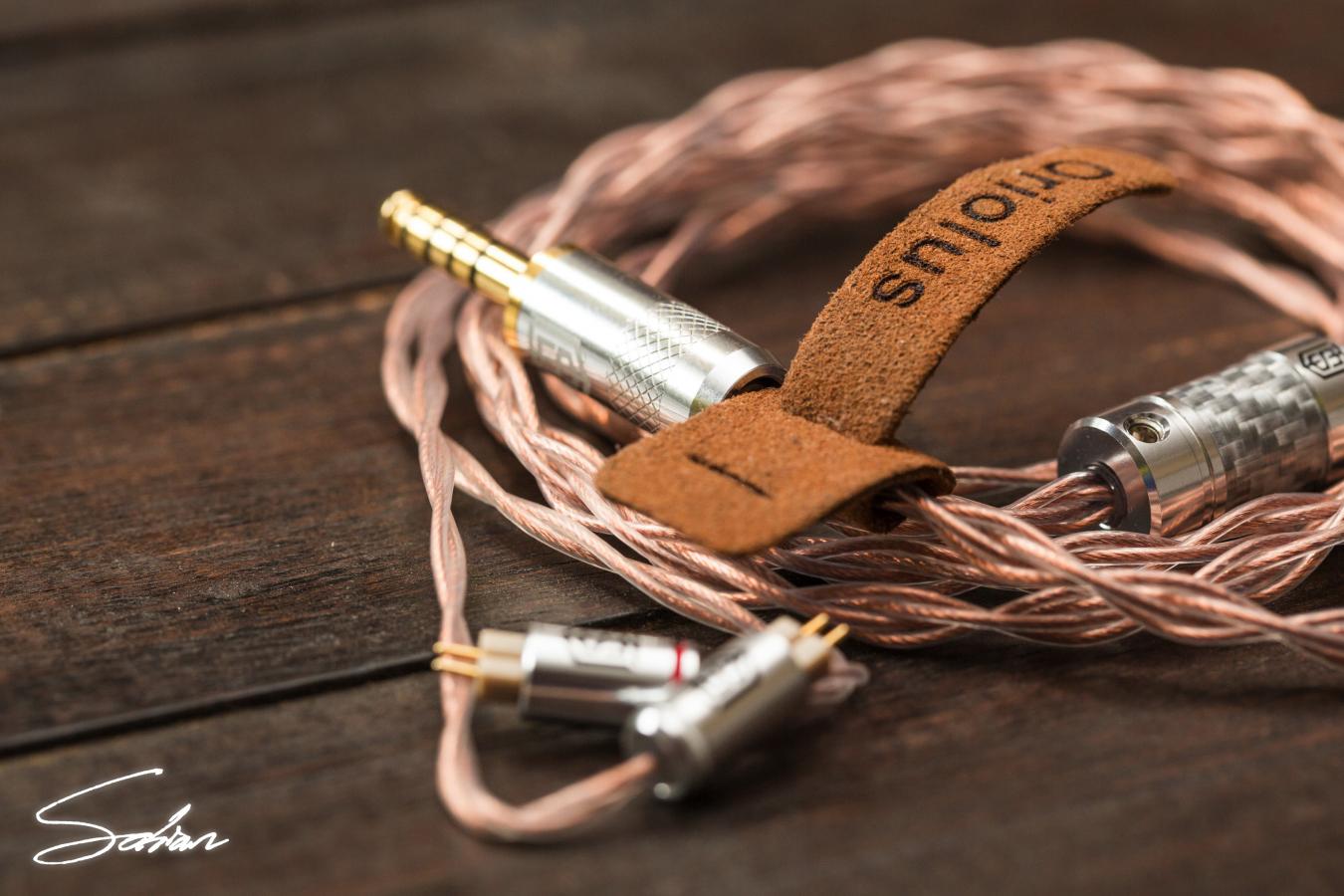
The cables themselves are of immensely high quality. Despite their price points, the Griffin and Chimera exhibit builds comparable to far pricier offerings from their competitors. The insulation they employ is on the slimmer side; closer to PlusSound’s or Han Sound Audio’s. All three cables share a quality in that they’re a smidgeon less supple, but they gain tightness, compactness and lightweight-ed-ness in return. They form tidier, more uniform braids as well, so they’re less noticeable and more ergonomic in everyday use. Satin Audio forego the pre-shaped heat shrinks for flexibility as well.
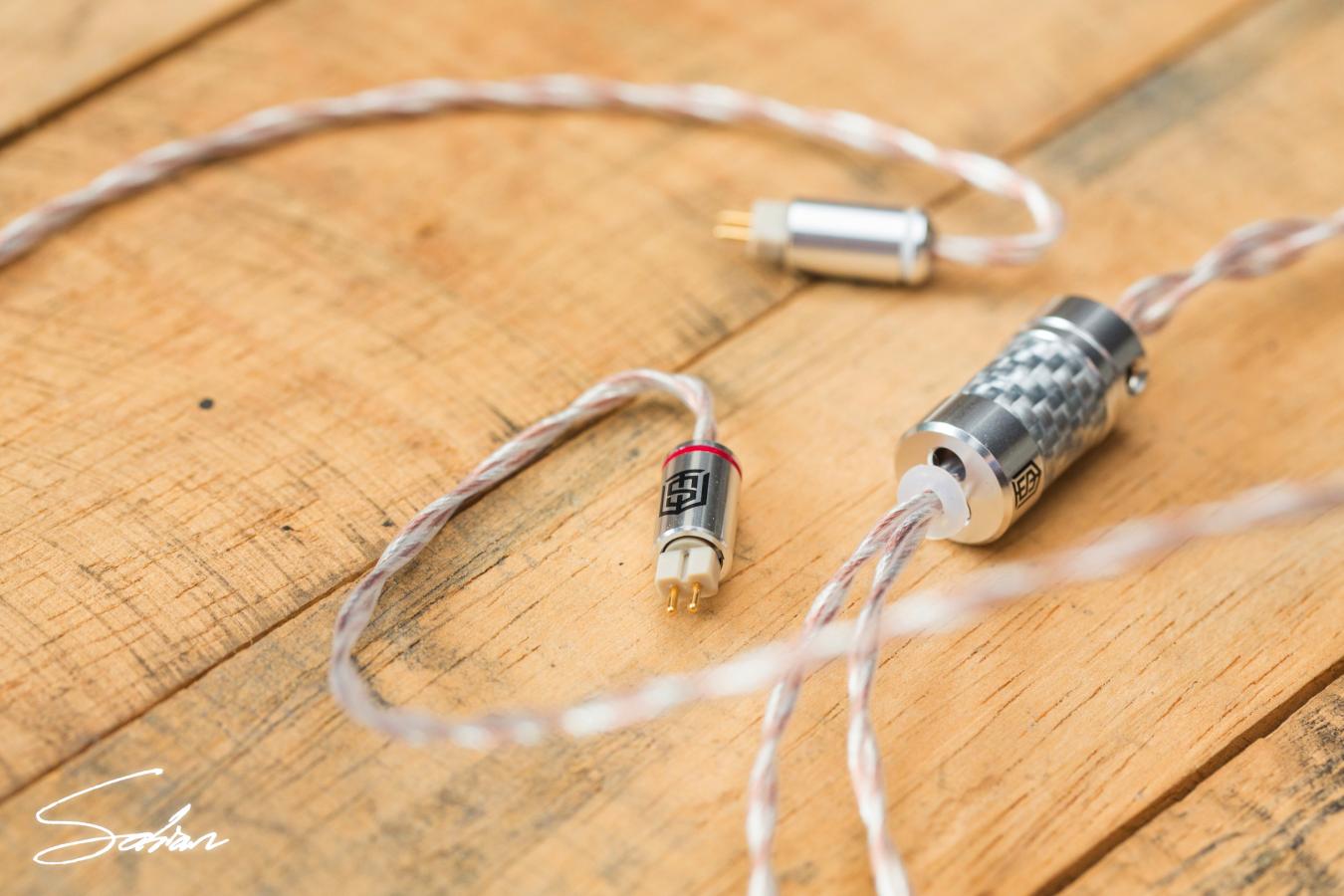
The Y-split and connectors both sport a chrome-metal aesthetic. The former has a carbon fibre insert, while the latter have Satin Audio branding. It doesn’t quite reach the classy heights as the competition, but Satin Audio definitely have it where it counts. At $109.90 and $116.90 respectively. they’ve transcended their standards in flexibility, weight and braid quality. When you consider how many jabs it takes at the competition, it only adds to thier stellar value-for-money.
Satin Audio’s 2.5mm Plug
With the two cables, Satin Audio also offered I take a look at their 2.5mm TRRS balanced connector. The SA2.5G-18’s plug is gold-plated, which is an industry standard. Rhodium has become the more popular option lately for the higher-end brands. But, plugs with those finishes are obviously much pricier. Again, I’m a fan of the metal finish on the hardware, as well as the carbon fibre inlay. I wish the base of the plug was an insulator to avoid grounding issues with Astell&Kern’s older digital audio players, I personally can’t speak for how easy it is to solder in or anything, but for $19 (or $13 at a 32% discount available on their site at the time of writing), I think it’s a great value option if you’re a budding cable builder.
